| Article Overview:
What is a Chariot of Vigilance? Would you race the Beast of
Terror to win the safety and security of your children, and the
Children's Children's Children? The movie Ben-Hur
symbolizes the ability of an Arab-Jewish coalition against the Beast
of Terror. Find out how you can champion the battle against the
Beast. |
 VigilanceVoice VigilanceVoice
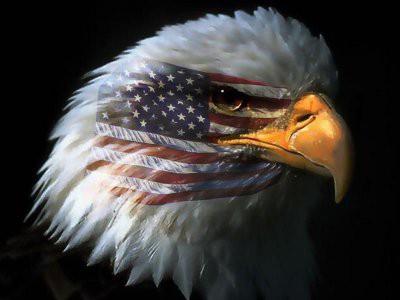
www.VigilanceVoice.com
Monday--March
3, 2003—Ground Zero Plus 537
___________________________________________________________
A Lesson From Ben Hur On The Chariots of Vigilance
___________________________________________________________
by
Cliff McKenzie
Editor, New York City Combat Correspondent News
|
GROUND ZERO, New York City, Mar. 3--I
watched Ben Hur yesterday, for no other reason than to escape,
momentarily, the madness of world events.
Earlier in the day I had traveled up from the
East Village to Central Park West, where I met with some friends as I
do weekend mornings. We usually have coffee or breakfast, and
share about the week's adventures.
Some are actors, lawyers, socialites, musicians,
news people, salespeople, retired teachers, truck drivers and one is a
former B-25 WWII pilot.
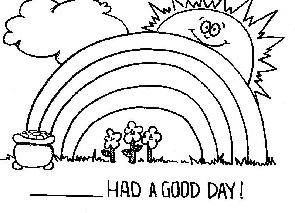 |
|
We focus on a
universal theme "What's good about today?" |
We come from all
walks of life, ethnicities, social, political and sexual preferences,
and use our differences as symbols that we can overcome them if we
agree to focus on a universal theme: "What's good about today?"
The group has been meeting for years, over
sixty to be exact, and I stumbled into it about ten years ago when I
was visiting my daughter in New York from California. We
meet for about an hour in a formal round robin discussion and then
break and drift into small groups at our individual option to chatter
about events, mostly personal. There is a rule that we
avoid "current events" in our formal discussions and talk about our
evolution as human beings, or, the struggles we engage in to achieve
that growth.
Few us know, or wish to know, each other's
last names. Our relationship is limited to our humanness,
not what we are, or pretend to be, or wish we were. This
allows us to not be trapped by social structure, or to feel
intimidated by one another. We're just evolving beings
regardless of age, color, race, religion or how much money we have or
don't have.
It's like taking a warm bath on a cold
night. You feel refreshed afterwards, as though you were
"part of" rather than "separated from" the throngs of human conflict,
and the challenges of judgment.
I tried unsuccessfully to break the "rules
of non-engagement." One of the members, a successful
defense attorney who a decade ago was crawling on his belly in
desperation looking for his sense of human value, has a penchant for
current affairs. When I walked into the meeting room where we
assemble at 8 a.m. on Saturdays and Sundays, he was talking with an
actor preparing to go to Europe for a three-month gig in Edward
Albee's play, The Ghost.
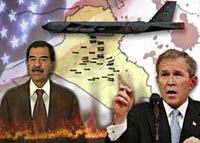 |
| Discussion of
current affairs was taboo |
I was eager to
share my article of the day regarding the destruction of Al Samoud 2
missiles by Saddam, and had an urge to get the lawyers take that
Saddam had 385 SA 2 rocket engines and only about 100 Al Salmoud
missiles. I thought it rather evident that Saddam
was playing games about destroying his missiles, and wanted to confirm
that reasoning.
When the conversation between the lawyer
and actor fell into a pause, I proposed the question to the lawyer:
"Do you think its odd that Saddam has 385 rocket engines and claims
only 100 missiles? Do you think he's got some missiles
buried in the sand?"
The lawyer, a nice guy as lawyers go, gave
me a innocuous smile as though I might be an ant crawling up an
elephant's ass, and replied, "I'm sure he does," and then returned to
the conversation with the actor about Vienna, where the actor was
going, and his appreciation of Albee.
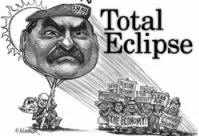 |
|
My
conversation attempted to eclipse the importance of the day |
I sat
heavily in my chair, slightly rebuffed because I knew I had brought
into the room a burden and tried to dump it on those who came to free
themselves of the "worldly events," at last for an hour or so.
It made me realize the importance of
taking some time off the narrow paths we walk, and enjoying the
respite of the wide highway of life.
The meeting's theme was on trust.
"How can we learn to trust without feeling violated?"
Each of the approximately
thirty present shared his or her take on how the issue of trusting
another backfired, and betrayal set in, igniting resentments and
sometimes a thirst for revenge.
The solution seemed to balance
one's trust with others in relation to degrees of risk--what might
happen if that trust was violated, and would the consequences be worth
it--i.e., could you handle it if the bonds were broken.
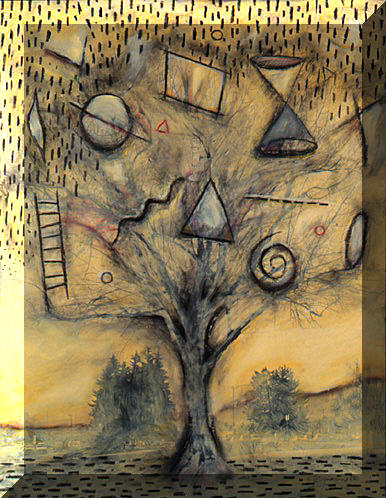 |
|
Climb
the Tree of "no boundaries" and you can't get hurt |
I
happened to have some experience with trust, and cited a book I had
read called No Boundaries, in which the author suggested
that all "expectations" were battle lines, and that trust was the
formation of an expectation that someone would comply with another's
side of the bargain, and when he or she didn't, the expectation of
trust created emotional shrapnel. Thus, if one had the
least expectations of another, or, non at all, then one couldn't get
"hurt" if another violated the bond.
It sounded good, but ultimately
is impracticable unless you are a Buddhist monk. But the
philosophy softens human experience by reducing the demand that one's
expectations and his or her trust be fulfilled.
After the meeting, I opted not
to engage in the coffee clutches that followed, and instead, strolled
through Central Park toward the subway, and made my way back to the
East Village.
The meeting had been good for
me because I have an increasing expectation that the world should be
cast in a different mould, one far more Vigilant than its current
state. I found myself coiling up inside, becoming more and more
frustrated at the insanity of nations, and the constant bickering and
back biting of nations seeking to jockey for power in a world where
the immediate issue is resolving Terrorism, or at least, agreeing to
resolve it.
In my mind, the world was once
again dancing in circles, going in no direction. More and more
nations were falling off the alliance ladder. I saw them as
hyenas, more and more selfish in their designs to ravage the spoils of
conflict rather than pay the high price of Vigilance that
Terrorism demands. The refusal of the Turkish Parliament
to support U.S. troops infuriated me. I formed the expectation
that even though it cost us $15 billion in promised loans and
aid, Turkey would allow us to use its bases to launch a Northern
assault on Iraq.
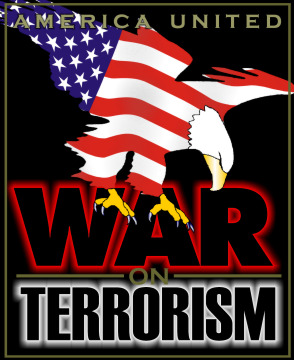 |
|
Each delay
increases the Beast of Terror's strength |
I wanted the War On
Terrorism to get off the chopping blocks. Each day we
danced with the Beast, in my opinion, whittled away the urgency to
contain the Beast. Each delay, each attack on unity to fight
him, gave him time to stretch his muscles and renew his enthusiasm
that the world was far more Complacent than Actionable.
Delays broadcast a message to other Terror Leaders such as Kim Jong Il
of North Korea. The more he saw chunks of flesh being bitten out
of America's watchdog, the more he pressed to cook up a vat of Terror
Weapons to maximize his threats, to bolster his power of Fear,
Intimidation and Complacency over his neighbors and the world.
Kim had boasted that if America attacks North Korea, he would unleash
"hell" in other parts of the world. He was holding the gun
to the world's head while Saddam offered the diversion.
Being a small Voice in the
wilderness, I have to scream louder than most in hopes of being heard
over the cacophony of opinions. I get hoarse, and often
feel frustrated that what I have to say falls on deaf ears, or no ears
at all.
My "straw in the wind" attitude
brings me to the brink of Complacency where I feel like Sisyphus
shoving the eternal rock up the hill, only to have it roll back again
and again before I reach the peak. I think of myself in these dark
moods as a grain of sand blowing over some Arabic desert, so miniscule
that even a Hubble Telescope ten feet from me couldn't pick me out of
the dust.
That's when Ben Hur came to my rescue.
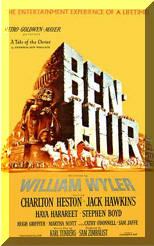 |
|
Ben-Hur to the
rescue |
Because I get up
at 4 a.m. each morning to research and write my story--to place my
grain of sand on the sea of sand--I take a nap during the day, at
least two hours. I flip on the television and let it lull
me to sleep. I happened to see Ben Hur was on the Turner
Movie Channel, and began to watch it.
It is a majestic movie. It is 221
minutes in length, and epic in nature. William Wyler directed
it. It stars Charlton Heston as a rich Jew named Judah
Ben-Hur, caught in a moment of time when Jesus Christ was crucified.
Heston becomes a gladiator, racing chariots after being cast out of
his home by his former Roman childhood friend, Messala, played by
Steven Boyd. He is befriended by a Roman naval commander,
Quintus Arrius, expertly played by Jack Hawkins.
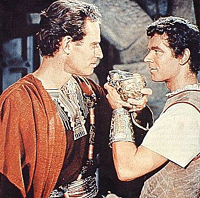 |
|
Ben-Hur and
Messala: friends to foe |
But the movie turns
from a powerful epic of human conflict to one of political Vigilance
when Heston meets an Arab, Sheik Ilderim, played by Hugh Griffith,
bent on beating the Romans in a chariot race. Judah Ben-Hur
seeks revenge against Messala for putting his mother and sister in
prison, and agrees to race the Arab Sheik's prize horses against his
nemesis, Messala.
It is in the meeting between the Sheik
Ilderim and Judah Ben-Hur that I sat upright and chose not to sleep.
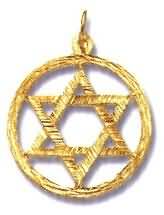 |
|
The Star of
David |
Sheik Ilderim warns
Judah to not seek revenge by killing Messala, but instead urges him to
beat him in the chariot race. He gives Heston a Star of
David, the symbol of the Jews, to wear while he is racing. He
extols the virtues of an Arab-Jew coalition against the Romans, and
how Roman Terrorism of the land--ie, their rule by Fear, Intimidation
and Complacency over the Jews and Arabs--will be diminished if Heston
is victorious.
The dialog in this scene is superb.
It promotes the alliance of the Jewish and Arabic people at the grass
roots level against the Beast of Terror represented by Roman rule.
It seeks not to promote violence but
instead victory over violence. There is a gleeful spark in
Griffith's eyes as he "sells" Judah Ben-Hur on becoming a symbol of
leadership, an icon of Jewish-Arabic unanimity against the Romans.
Later in the film, following Judah's
victory, Pontius Pilate summons Heston. He offers him
Roman citizenship, explaining to him how Rome's power dominates the
land, and that if Judah refuses to join the Romans, he will be become
a "victim of power."
I thought hard about the dialogue between
these two powerful sources--an Arab and a Jew. The movie,
depicting a story nearly 2000 years ago, rang true today.
In the Middle East, there is an enemy as fierce as the Roman Empire
stalking the land.
It is Terrorism.
It has no particular face, and wears no
particular national colors. Like Rome, it is ubiquitous,
omniscient It is the Beast of Terror--the Fear, Intimidation and
Complacency that pits one nation against another, that forces the
worst rather than the best out of human beings.
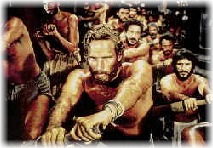 |
|
Ben-Hur seeks
revenge for the plights of his mother and sister and
himself at the hand of Messala |
Sheik Ilderim commands
a vista of perseverance against the Beast that Judah Ben-Hur cannot
fathom. All Judah wants is revenge, blood, an eye-for-an-eye.
He had been brutally violated by his childhood friend who forced him
to commit a criminal act and ultimately become a slave plus the
imprisonment of his mother and sister. He wants blood.
But Sheik Ilderim sees another vision--one
of unity and Vigilance between the two. The Arab-Jewish front,
he says, will bring Rome to her knees. It will crumble Rome's
power by showing that there are "Sentinels of Vigilance" who are
willing and capable of standing up to the Beast of Terror, who do not
fall victim to the Beast's shadow that casts Fear, Intimidation and
Complacency on a land.
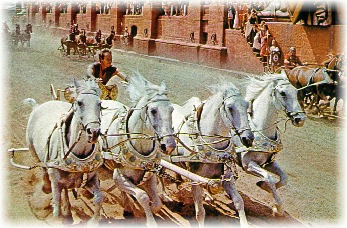 |
|
Ben-Hur races
the Sheik's "children" for the Children's Children's Children |
Metaphorically, the
Sheik's "children" are his beautiful, powerful horses.
They symbolize the "children of the land." It is for their
future, and the future of peace and prosperity that he urges Judah
Ben-Hur to win the battle with his hate and rage through racing not
through "war."
Today, the Middle East is riddled with the
same poisons left from Roman conquest. The same Fear,
Intimidation and Complacency illustrated in this mid 1950's film mix
with potential of Courage, Conviction and Right Actions for the
Children's Children's Children.
Judah Ben-Hur finds faith in dark caves of a
leper colony where his mother and sister are condemned to death.
He finds the Courage to overcome his Fear, the Conviction to overpower
his Intimidation, and the Right Actions that quash his Complacency
that only hate and revenge will salve his torn soul.
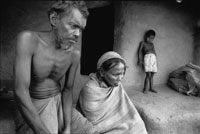 |
|
Ben-Hur finds
faith in a leper colony |
I believe that one day,
when the Children of the Middle East become more important than the
power of "states of nations" that comprise it, peace will fall upon
the land.
This is also true in Asia where Kim Jong Il, as
the Roman Empire once attempted, seeks to bully the people into
accepting him as a power source, fearful if they don't comply with his
demands he will unleash his legions of mass destruction.
If history has any meaning, then the ability of
opposing forces to act as one to rid the land of the threat to future
generations must win in the long run. Even Pontius Pilate
affirms in the scene between himself and Judah Ben-Hur that Rome's
power today may not last, and that nations with great power make great
mistakes.
But there is a higher power than the present.
That higher power is the future of all the children of all lands--to
be free from perpetuation of Terrorism.
Saddam Hussein's thirst for power, or Kim Jong
Il's, or Osama bin Laden's, or the next Terrorist who pops up on the
radar screen, will hope for division and derision among states and
nations. He will feed off the hate and desire to revenge
one people have brewed against other people, and that hate and revenge
will blind those, as it almost did Judah Ben-Hur, from a greater
truth.
I recommend that all world leaders take 221
minutes out of their lives and study the movie and its dialogue.
Especially the scenes between the Sheik and Ben Hur, and between
Pontius Pilate and Judah. The message is clear--there is a
solution to the Beast of Terror. It isn't violence, it is
victory over violence.
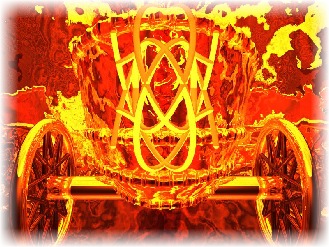 |
|
Climb into the
Chariot of Vigilance |
And,
for the citizens of the world, I suggest each take the
same time to review the film. Don't wait for the
politicians or world leaders to arrive at a solution for
the future. Climb into the Chariot of Vigilance.
Race the Beast of Terror.
Victory can be yours
if you wear the Shield of Vigilance, and take the Pledge
of Vigilance and its Principles to heart.
Long live Ben-Hur.
Long live Vigilance.

Mar. 2--Crushing Al Samoud Missiles--Or
Breaking America's Back?
©2001
- 2004, VigilanceVoice.com, All rights reserved -
a ((HYYPE))
design

|
|
|